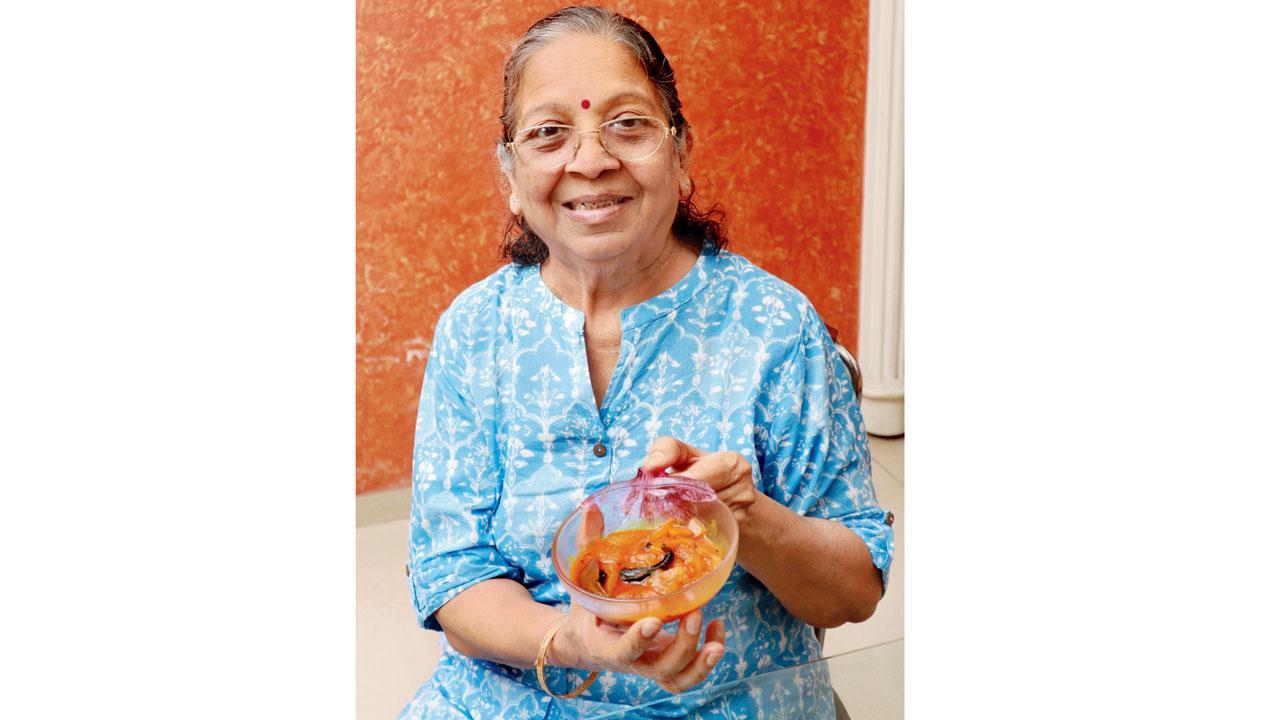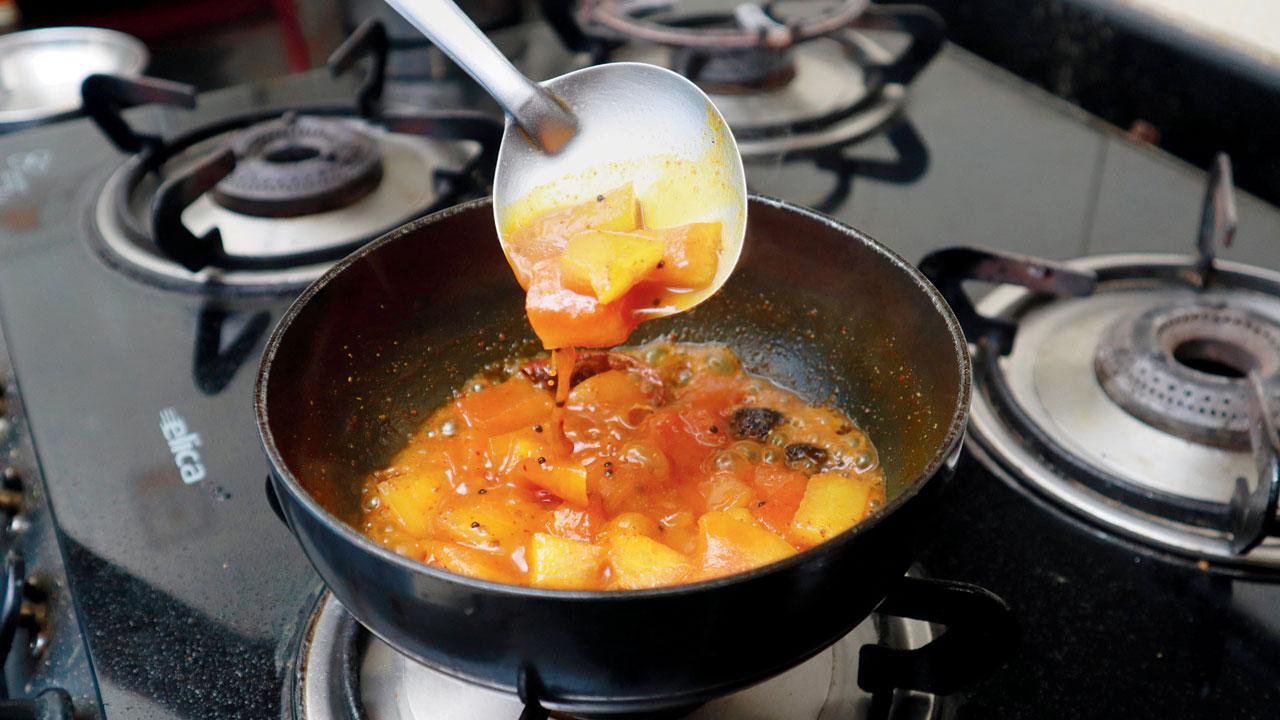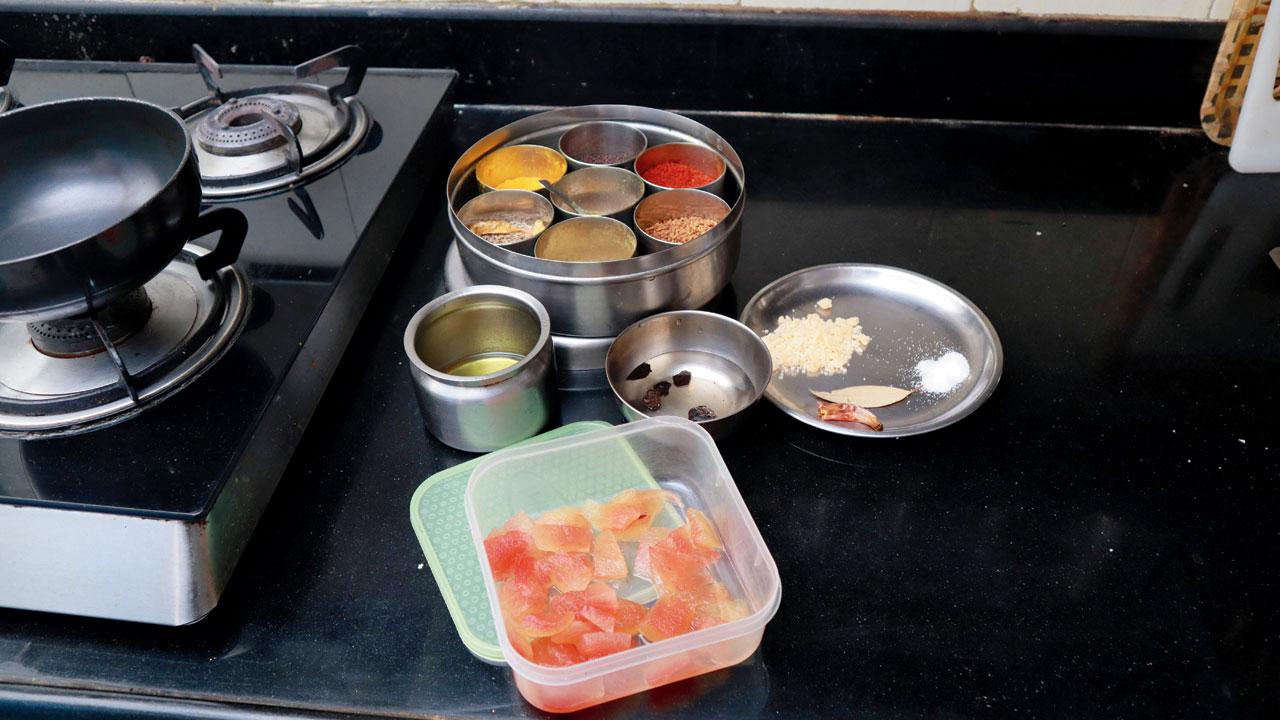Think twice before throwing away watermelon peels—make a sabzi instead

Seventy four-year-old Vasanti Shah has been making sabzi out of the white part of the watermelon rind for as long as she can remember. It goes best with wheat rotis. PICS/M FAHIM
Nothing spells summer better than a tall glass of chilled, fresh watermelon juice with tiny cubes of fruit on top. A dash of chaat masala and voila! Clearly no one’s thinking about the rinds, but at 74-year-old Vasanti Shah’s home in Pune, the watermelon rind is reserved to make sabzi the next day. We’re told it’s a Kutchi-Gujarati and a Rajasthani speciality, but several adapted versions pop up on plates in homes that reduce food waste as an ingrained habit.
ADVERTISEMENT
Shah tells us the trick lies in peeling the watermelon carefully to get to the white pith of the rind, not the green. She recalls making the dish for as long as she remembers, having learned it from her mother. “Growing up Kutchi in a Jain-dominated area in Mumbai, this sabzi was a staple in the summer, whenever watermelon was consumed. An easy dish, we used to make it regularly in the evening, but it’s not special enough to make for guests,” she adds.

Request the recipe and she shrugs, “After so many years of feeding your loved ones, cooking becomes instinctive. Equal parts sweet and sour, just like most Gujarati cuisine, you add mustard seeds to hot oil and let crackle. Follow this quickly with a pinch of asafoetida, one-half dry red chilli, jaggery and kokam according to taste. Then add the carefully-peeled white part of the watermelon rind. Add around a cup-and-a-half of water, followed by salt and red chilli powder as per taste. Season with fresh coriander and jeera powder, and cook further for five to seven minutes or until the peel softens. Keep a thick gravy-like consistency so that you have with roti and skip making dal. It’s quick and simple. I think it goes best with wheat roti because when growing up, I used to have it with bajra [pearl millet] ki roti, and I didn’t like it much. A glass of cold buttermilk completes the meal. Both watermelon and buttermilk have a cooling effect on the body on hot summer days. In some homes, muskmelon rind [white] is used to make a sabzi as it has the same texture of watermelon rind.”

Shah warns that the taste of this vegetable can take some time to get used to, more so because of its sweet and sour taste, and soft texture. Also because our minds are conditioned to throw away the rind. “As an ingrained habit, Gujaratis are known to make sure that food doesn’t go to waste; it’s only later that we discovered its nutritional benefits,” she smiles.
More recently, we see watermelon rind also star in salads and cocktails, giving both, interesting taste and texture. With a good dose of Vitamins K and B12, rich fibre and proven to boost workout and regular blood pressure traits—what’s not to like we ask?
 Subscribe today by clicking the link and stay updated with the latest news!" Click here!
Subscribe today by clicking the link and stay updated with the latest news!" Click here!







